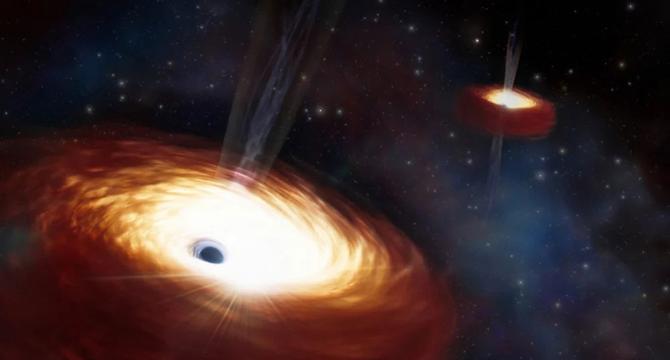Knowridge
1w
209

Image Credit: Knowridge
How an actively feeding supermassive black hole could be good for life
- Radiation from active galactic nuclei (AGN) can have both positive and negative impacts on nearby planets and life forms.
- Strong ultraviolet (UV) emissions from AGN can either help transform a planet's atmosphere or hinder the development of prebiotic compounds.
- Once a planet has existing life and an oxygenated atmosphere, the radiation becomes less devastating and can be beneficial by making the planet more resilient to UV radiation and protected from potential extinction events.
- Simulations of AGN radiation effects on Earth-like planets showed that the emissions can trigger ozone-building chemical reactions, creating a feedback loop that leads to a thicker ozone layer, which in turn protects the planet from harmful UV radiation.
Read Full Article
12 Likes
For uninterrupted reading, download the app